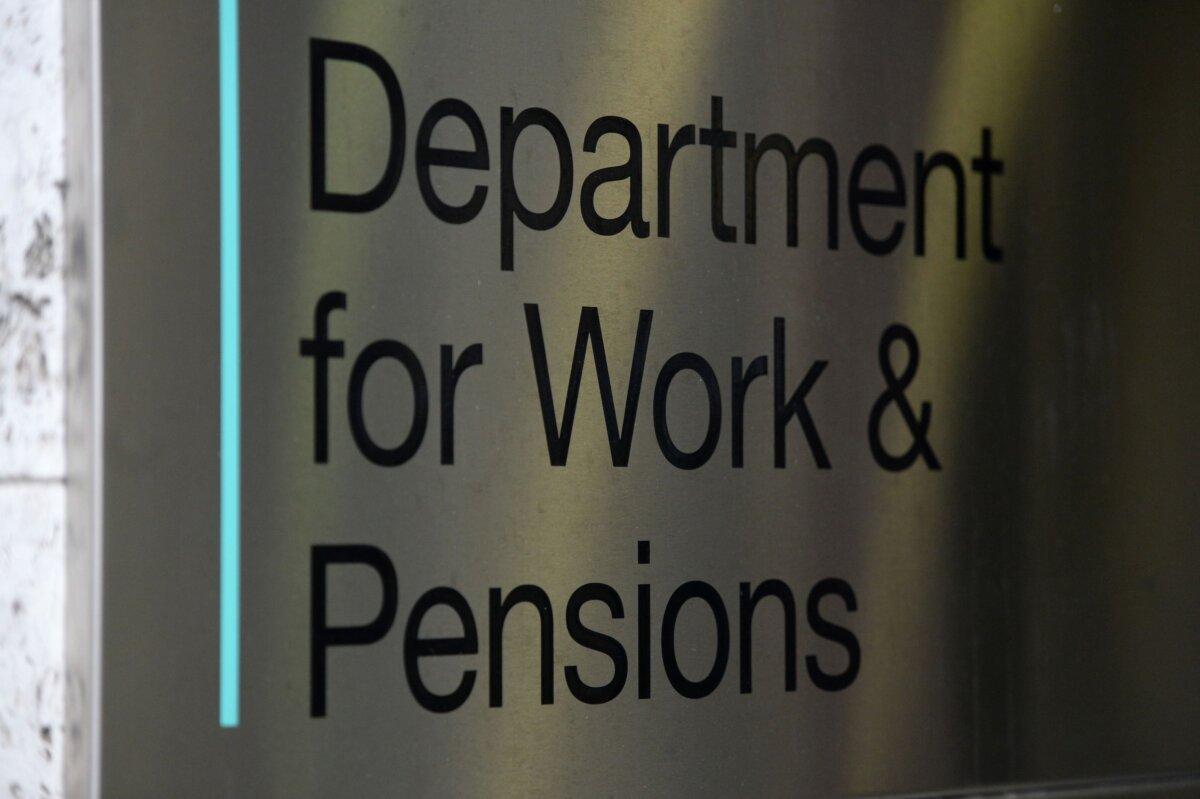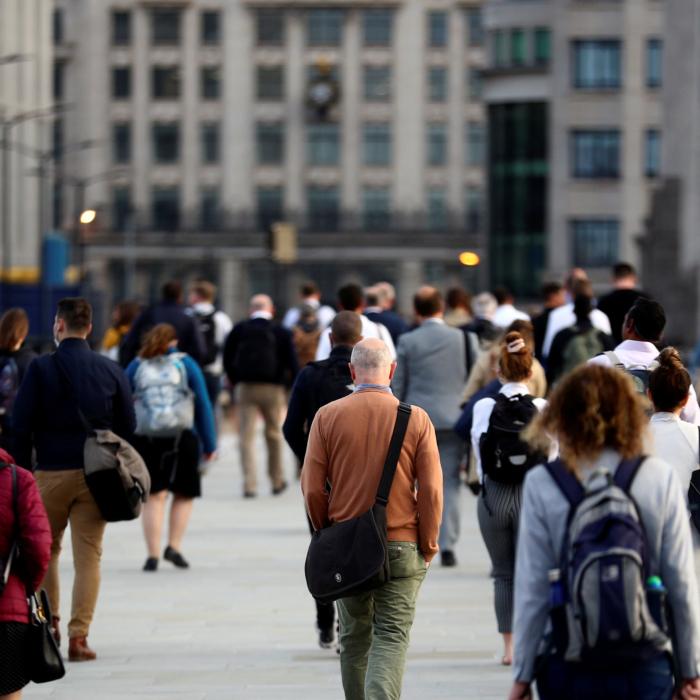Universal Credit will need to change because its design did not anticipate the “steep rise” in the number of people with ill health or disabilities, a think tank has said.
The Resolution Foundation said in a report on Monday that since the benefits system was reformed, unemployment had fallen from 8.5 percent in 2011 to 3.8 percent in 2023. But 2.3 million claimants are now out of work because of ill health, almost double the figure when Universal Credit was introduced in 2013.
It added that while the government had announced reforms for the test for ill health, “policy makers should not assume that Universal Credit alone can shoulder the burden of dealing with the UK’s challenge of rising inactivity through ill-health.”
Universal Credit Moved Unemployed Into Work More Quickly
The report said that “working renters are the biggest winners” on average by the reforms to the benefits system, which saw several former benefits like Child Tax Credit, Housing Benefit, and Income Support rolled into Universal Credit over a decade ago.In one example given by the think tank on the benefits to high-income renters, “a couple with two children paying rent at the average Local Housing Allowance on a two-bedroom property will be entitled to Universal Credit up to gross annual earnings of £67,000 in 2024-25,” compared to a ceiling of £42,000 for legacy benefits.
A renting single parent working 30 hours per week on the national living wage would also be almost £3,800 better off a year than on the old system, the foundation said.
There is also “clear evidence” that unemployed single people and lone parents claiming Universal Credit “move into work more quickly than those on JSA [Jobseekers’ Allowance].”
“Universal Credit reform still represents a net saving for the Exchequer compared to legacy benefits,” the report found, noting that the total modelled cost of Universal Credit at full roll-out and full take-up is £85 billion a year in 2024–25 and represents a “significant saving” over both the legacy system in 2013–14 (£100 billion in current prices) and the legacy system this fiscal year (£90 billion).
The Resolution Foundation said 71 percent of the 9.8 million families who are eligible for either Universal Credit or legacy benefits are “worse off” by £1,400 per year in real terms on Universal Credit in 2024–25 than they would have been under the legacy system in 2013–14.
“But this is largely due to cuts in overall levels of working-age support, rather than the design of Universal Credit,” the think tank said.

Universal Credit Britain
Alex Clegg, economist at the Resolution Foundation, said in a statement: “A lot has changed since Universal Credit was first introduced back in 2013. The working-age benefit system is less generous, with entitlement down by £14 billion. And while the 2010s’ problem of high unemployment have faded, Britain faces new challenges from an older and sicker population.”Mr. Clegg continued: “Compared to the old system, Universal Credit offers greater support for renters and stronger incentives to enter work. But its original design did not anticipate there being over two million claimants with poor health or disabilities.
“Alongside efforts from the NHS, education, and labour market policy to address the drivers of ill health, UC will need to change to tackle Britain’s new challenge of long-term sickness.”
The think tank noted that as neither of the main parties have said they wanted to scrap Universal Credit, whichever party wins the next election will be governing a “Universal Credit Britain,” which is due to cover 7 million families by 2029.
A Department for Work and Pensions spokesperson said that Universal Credit “has proven itself as a modern benefits system fit for the future, providing a vital safety net to millions while helping people move into work faster.”
The spokesperson said the government had increased benefits by 6.7 percent this month, worth £470 for 5.5 million households on Universal Credit.
“Work is the best path to long-term financial security and through Universal Credit, our £2.5 billion Back to Work Plan will help over a million people—including those with long-term health conditions—find, stay, and succeed in work,” they said.
Mental Health and Universal Credit
Last month, the Department for Work and Pensions (DWP) published statistics showing that in Britain, 874,000 assessments carried out between January 2022 to November 2023 recorded mental and behavioural disorders in Universal Credit Work Capacity Assessment decisions.This represents 69 percent of the 1.275 million decisions made by Universal Credit health.
The DWP explained that “claimants often have complex health issues and can thus be recorded with multiple conditions,” meaning that those with recorded mental and behavioural disorders may have other health issues recorded with Universal Credit.
The department also said that Universal Credit health assessments record all medical conditions, but do not record which is the “primary” condition.
The DWP said that it was expanding access to mental health services in an effort to tackle one of the main reasons for sickness absence, including putting an additional 384,000 people through NHS Talking Therapies over the next five years.







